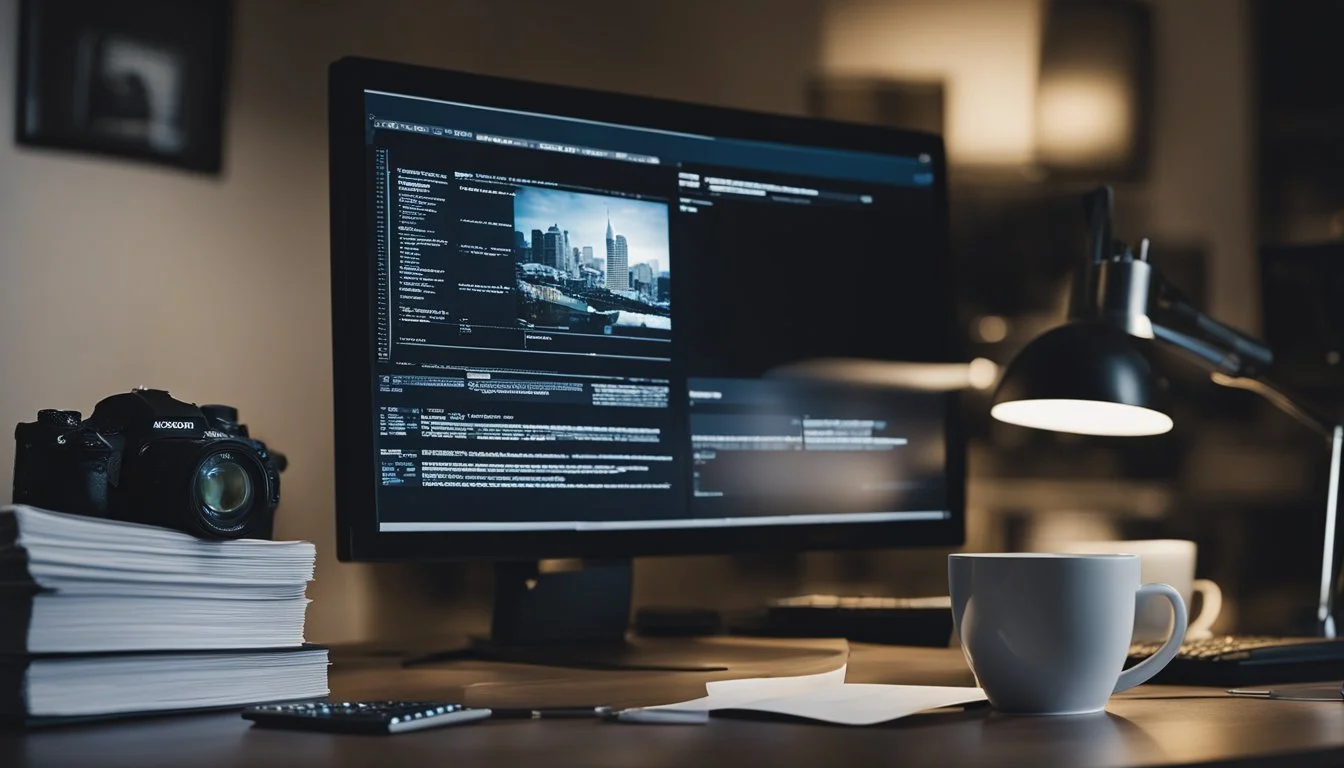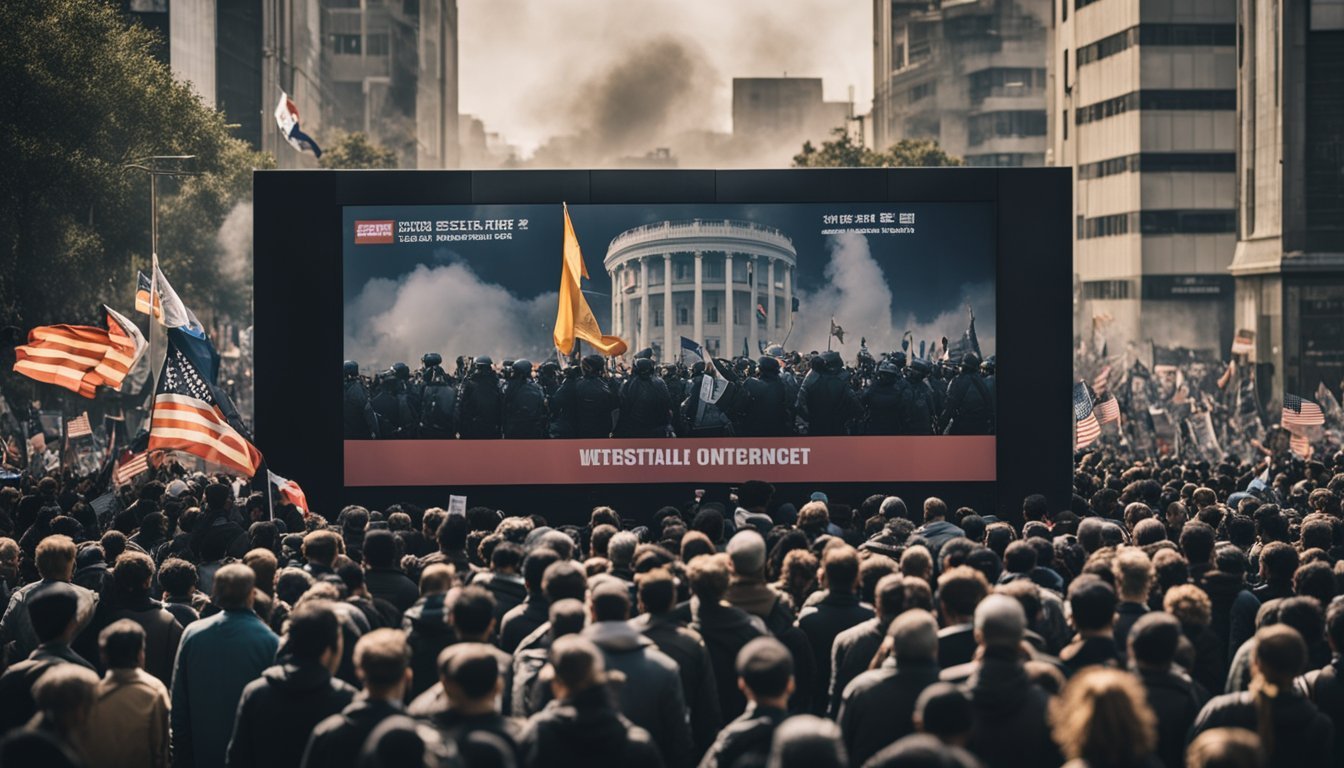5 Documentaries on Political Extremism
Exploring Radical Movements and Ideas
Political extremism has emerged as a critical issue in contemporary society, with various groups and ideologies posing significant threats to national and international security. This phenomenon has roots that are complex and multifaceted, often intertwined with social, economic, and political factors. As such, understanding its various dimensions is essential for addressing and mitigating its impact.
Documentaries provide a powerful medium for exploring and understanding the intricacies of political extremism. Through in-depth interviews, historical context, and investigative journalism, these films offer valuable insights into the motivations, structures, and consequences of extremist movements. They allow viewers to gain a comprehensive view of how extremism evolves and affects individuals and communities.
1) The Rise of the Bolsonaros (2022)
"The Rise of the Bolsonaros" is a feature-length documentary that provides an in-depth look at the political ascent of Jair Bolsonaro, President of Brazil. This film, made by PBS, dives into his journey from relative obscurity to prominence on the global stage.
Bolsonaro's controversial views on issues such as gender and indigenous rights have kept him in the headlines since his election victory in 2018. The documentary outlines his strategy, including his use of social media to directly engage his followers and mobilize his political base.
The production features various interviews and perspectives that offer insight into Bolsonaro's political methods and the influence of his inner circle. Viewers get a comprehensive view of how he capitalized on existing social and political tensions in Brazil to achieve his goals.
The film is recognized for its thorough and balanced portrayal of Bolsonaro’s rise, giving a valuable context to understand the broader implications of his presidency. It highlights significant moments and decisions that shaped his journey to the top.
For more information, you can check out the Wikipedia page on Rise of the Bolsonaros.
2) White Right: Meeting the Enemy (2017)
Directed by Deeyah Khan, "White Right: Meeting the Enemy" explores the resurgence of far-right extremism in the United States. Khan, who has faced death threats from far-right groups, engages with prominent neo-Nazis and white supremacist leaders.
This film provides an intimate look into the personal and political motivations driving these individuals. Khan’s approach involves sitting down face-to-face with them, seeking to understand their perspectives.
Deeyah Khan's background as a Pakistani immigrant to Norway has shaped her unique perspective on racism and extremism. Her interactions reveal the complexities of hate and the possibility of change, such as in the case of Ken Parker, a former neo-Nazi who has left the movement.
More information on White Right: Meeting the Enemy
3) The Great Hack (2019)
"The Great Hack" is a 2019 documentary directed by Jehane Noujaim and Karim Amer. It explores the significant Facebook-Cambridge Analytica data scandal.
This film dives into issues of data mining and political manipulation. It emphasizes the impact of social media platforms on democratic processes, such as the 2016 United States presidential election and the Brexit referendum.
Key figures in the documentary include Brittany Kaiser and Alexander Nix. These individuals offer insights into the operations of Cambridge Analytica, revealing the depth of data harvesting and its implications for privacy and democracy.
The documentary also highlights the role of investigative journalism in uncovering these practices. Important contributors like Carole Cadwalladr played a pivotal role in bringing these activities to light.
Through compelling footage and interviews, "The Great Hack" illustrates the growing digital threats to personal privacy. It urges viewers to reconsider the power and influence of data in the modern world.
For more detailed information, visit Wikipedia.
4) American Radical
"American Radical" (2009) is a compelling documentary that dives into the life and work of Norman Finkelstein, a political scientist and activist known for his provocative critiques on the Israel-Palestine conflict.
Finkelstein’s perspectives and experiences provide insight into the complexities of political extremism and the debates surrounding Middle Eastern politics.
The film explores his controversial views, academic battles, and personal challenges. It offers a nuanced portrayal of Finkelstein’s relentless pursuit of justice, revealing the intense reactions his work elicits.
For more information, you can visit the IMDb page.
5) Alt-Right: Age of Rage (2018)
"Alt-Right: Age of Rage" is a documentary directed by Adam Bhala Lough that examines the rise of the Alternative Right movement in America.
The film explores the ideological foundation of this movement along with its key figures and events.
The documentary features significant clashes between "Alt-Right" demonstrators and counter-demonstrators, capturing moments like the incident in Charlottesville, Virginia in August 2017.
It also delves into the social and political tensions heightened during the early months of Donald Trump's presidency.
Conversations with members of Antifa, an anti-fascist group, present counterpoints to the "Alt-Right" perspectives, offering a broader view of the political landscape.
This film is regarded as a critical resource for understanding modern political extremism in the United States.
Historical Context of Political Extremism
Political extremism has roots in history, evolving over time and often influenced by key socio-political events. It manifests through various ideologies, shapes societies, and sometimes leads to significant conflict and change.
Early Instances and Evolution
Early instances of political extremism are noted in various parts of the world. The French Revolution (1789-1799) saw radical movements seeking to overthrow monarchies and establish republics. The rise of anarchist movements in the 19th century demonstrated extreme opposition to state control.
In the 20th century, fascism and communism highlighted extremism on the right and left, respectively. Nazi Germany and Stalinist USSR are prime examples of state-sponsored extremism leading to vast societal changes through violent means and strict ideologies.
Influence of Socio-Political Events
Socio-political events shape and influence political extremism. The Civil Rights Movement in the 1960s saw a backlash from extremist groups in the U.S., with organizations like the Ku Klux Klan reacting violently against desegregation efforts. Similarly, the economic hardship during the Great Depression fueled extremist political ideologies worldwide.
The late 20th and early 21st centuries saw the rise of domestic terrorism linked to socio-political discontent. For instance, events such as the Waco Siege in 1993 and the Oklahoma City bombing in 1995 highlighted the extent of domestic extremism influenced by anti-government sentiments.
Political extremism continues to evolve, often reacting to and shaped by contemporary socio-political dynamics, illustrating an ongoing cycle of influence and reaction.
Impact on Society
Political extremism profoundly influences both social cohesion and governmental policies. Its disruptive effects manifest in increased polarization and significant shifts in policy creation and implementation.
Social Polarization
Political extremism amplifies social polarization. Extremist ideologies often thrive on divisive rhetoric, creating deep fissures in communities. For instance, the 2017 Charlottesville rally highlighted growing tensions between far-right and counter-protest groups. Media coverage and social media platforms exacerbate these divides by spreading misinformation and echoing extremist views.
The documentary "The Social Dilemma" delves into how social media's design promotes addiction and further divides users. This polarization extends beyond online spaces, affecting real-world interactions and challenging the fabric of societal unity. As people increasingly find themselves in ideological silos, mutual understanding and constructive dialogue become rare, further entrenching divisions.
Effects on Policy Making
The influence of political extremism on policy making is equally significant. Governments often respond to extremist threats with enhanced security measures and stricter laws. For example, the assault on the U.S. Capitol led to increased scrutiny of far-right groups and subsequent legislative measures aimed at curbing domestic terrorism.
Policies may also become more reactionary, aiming to prevent the perceived immediate dangers posed by extremist groups. This can result in curtailment of civil liberties or the implementation of sweeping surveillance programs. Over time, such policies may reshape societal norms and the relationship between the state and its citizens, impacting democratic processes and individual rights.
Role of Media in Political Extremism
The relationship between media and political extremism is multi-faceted. This section explores how traditional and social media contribute to the rise and spread of extremist ideologies.
Media Representation
How media outlets portray political extremism plays a critical role in shaping public perception. Mainstream media, through extensive coverage, often unintentionally amplify the voices of extremists. This can lend legitimacy to harmful ideologies by providing them a larger platform.
For instance, coverage of violent events sometimes focuses heavily on the perpetrators, giving notoriety to their actions and beliefs. This coverage can overshadow the stories of victims and the broader societal impact. Inconsistent journalistic practices, such as sensationalism and a focus on conflict, exacerbate these issues.
Impact of Social Media
Social media platforms are potent tools for spreading extremist ideologies. They provide a space for like-minded individuals to congregate, share ideas, and recruit new members. Algorithms designed to maximize user engagement often promote sensational and extreme content, which keeps users interacting with the platform longer.
These platforms can also facilitate the rapid dissemination of misinformation and propaganda. Unlike traditional media, social media lacks stringent editorial oversight, making it easier for extremists to circulate falsehoods that align with their agenda. This unchecked environment fosters echo chambers, where users are exposed primarily to content that reinforces their pre-existing beliefs, further entrenching their views.



